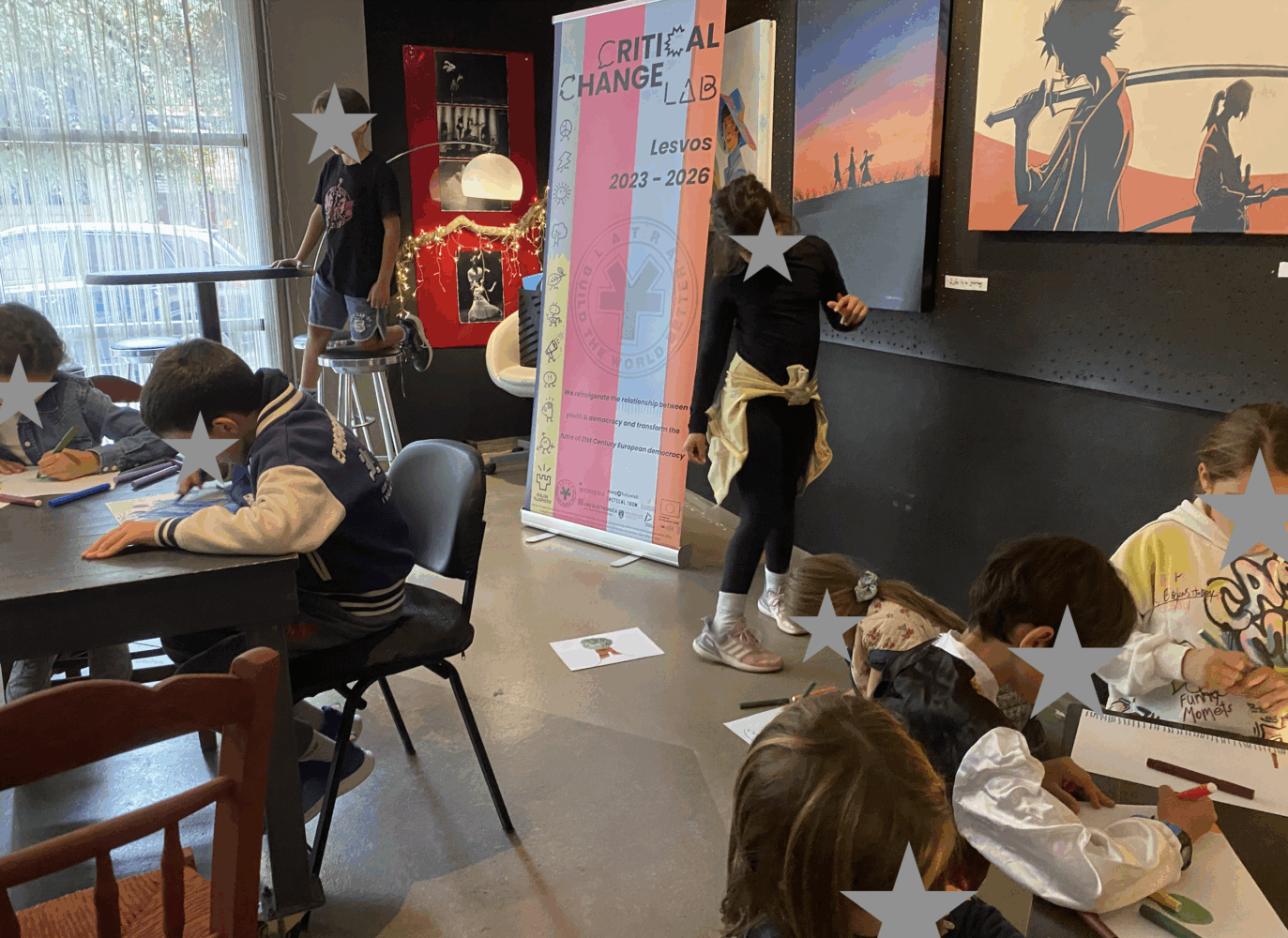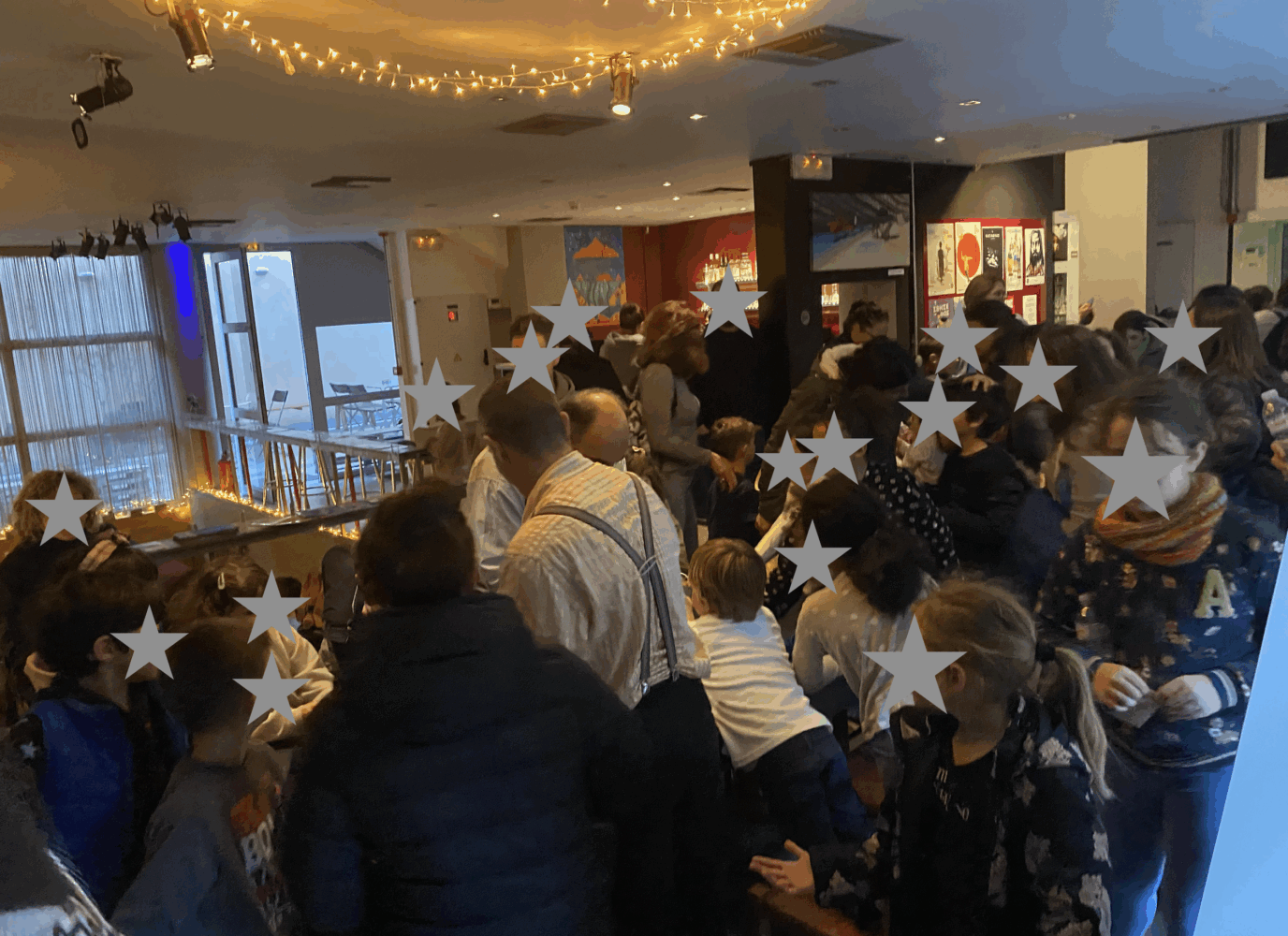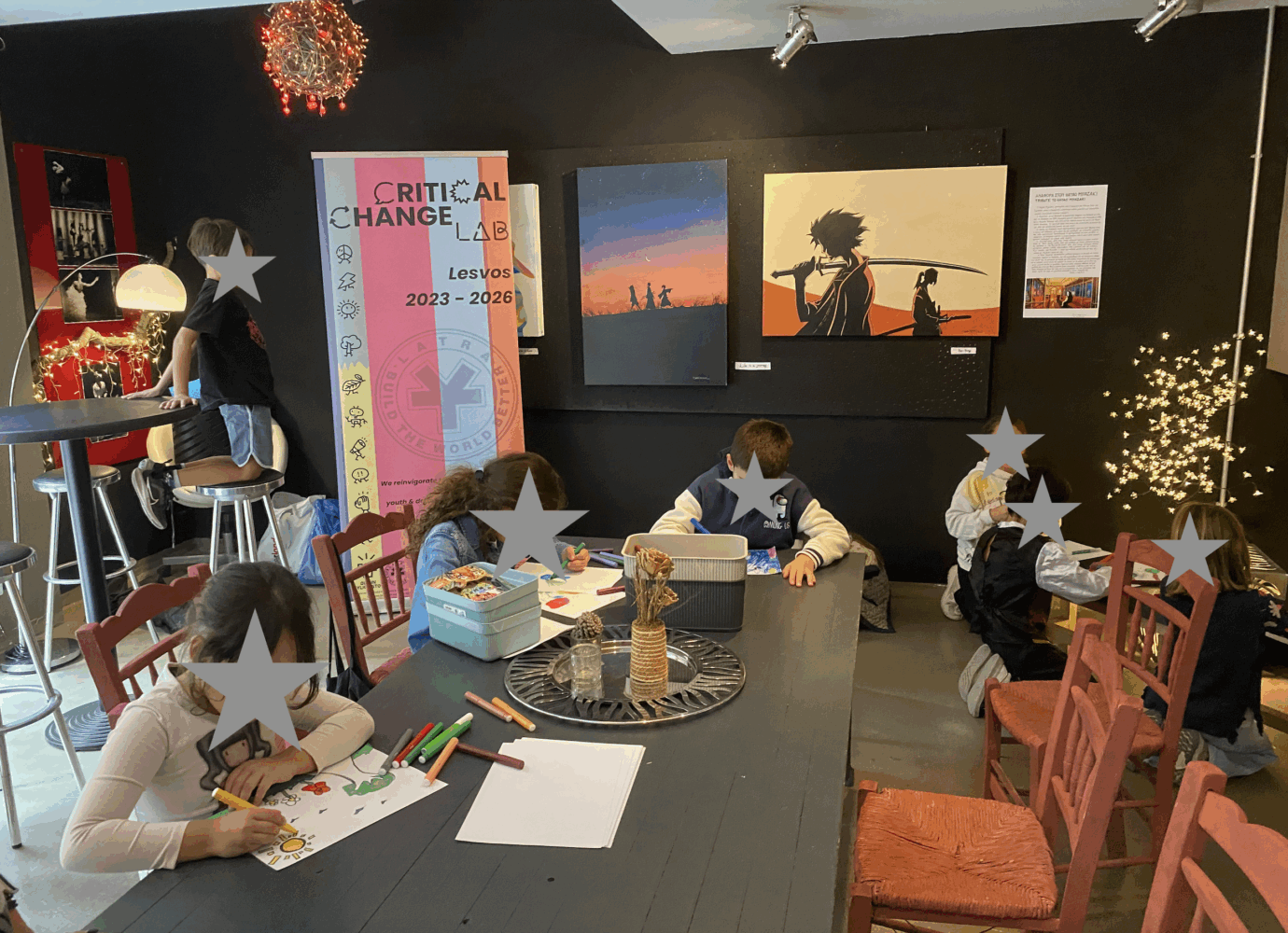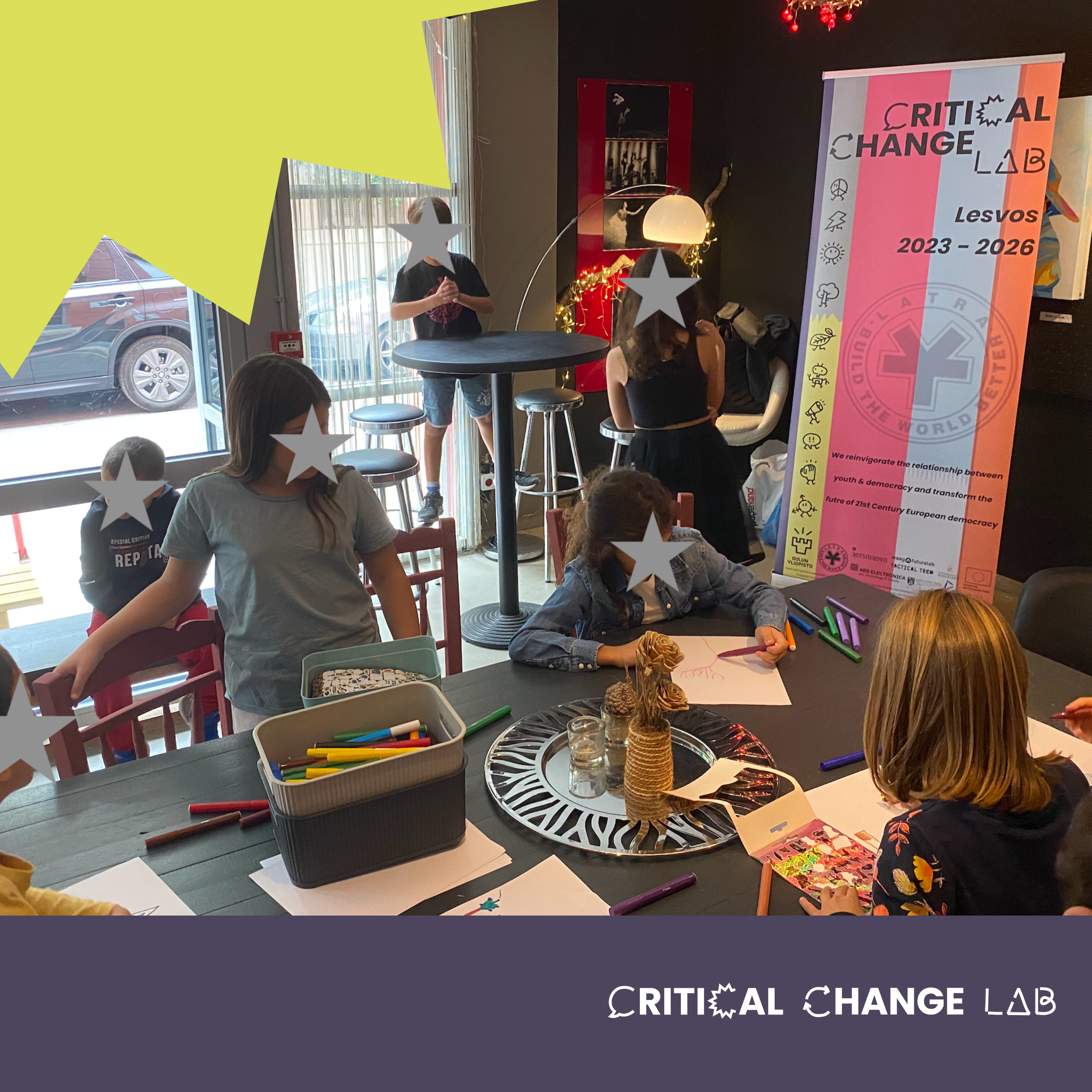LATRA’s second PAR Cycle used theatre and hands-on workshops to empower local and refugee children in Lesvos to rethink justice and inclusion – and live democracy in their schools and neighborhoods.
Theatre That Asked Questions
In autumn 2024, on the island of Lesvos – a frontline of Europe’s refugee crisis – a new kind of story took center stage. Here, where classrooms are shared by both local and refugee children, LATRA launched its second Participatory Action Research (PAR) Cycle with a bold, creative intervention: a retelling of George Orwell’s, Animal Farm.
This wasn’t just literature brought to life – it was democracy brought to schools, playgrounds, neighborhoods and dinner table conversations. Reimagined for 11-year-olds, Orwell’s allegory was turned into an interactive production where the children didn’t just watch the plot unfold; they shaped it. They voted on decisions, debated outcomes, and challenged authority – in real time.
“It made me feel like what I say matters,” said Ahmed, 11, a refugee student from Syria. “Even though it was just a play, it felt real.”
For many, it was the first time they were invited into civic dialogue – not in theory, but in practice. Questions weren’t rhetorical. Decisions had consequences, even if imagined. In a space where children are often expected to follow rules, they were suddenly the ones creating them.

Beyond the Stage: Workshops in Civic Thinking
The theatre was only the beginning. In the weeks that followed, LATRA’s facilitators and local teachers co-led a series of creative workshops that expanded the play’s questions into everyday life. Children explored concepts like justice, equality, and power – this time through drawing, storytelling, role-playing, and debate. Here, they questioned not only the play, but their own realities.
“We talked about who gets to make rules at school,” said Andreas, 11. “Then I thought – who makes the rules outside school? And why do they sometimes not feel fair?”
The workshops didn’t provide easy answers. Instead, they equipped children with the language and confidence to confront contradictions they were already living: democratic ideals taught in class versus exclusion they sometimes saw on the playground or heard at home. These conversations weren’t always comfortable, but they were necessary – and, for many, entirely new.

Dialogues Across the Dinner Table
The ripple effect reached beyond the school gates. Children began to take the questions home. Parents described their children bringing up fairness at dinner, asking some rules seemed to apply to some and not others.
These weren’t confrontations – they were invitations. And while not every conversation led to agreement, they marked a subtle shift in family dynamics: children stepping into their roles as thinkers, questioners, participants.
“My son asked why we say ‘all people are equal’ but then say refugees are a problem,” shared Sofia, a local parent. “I didn’t have a good answer.”
For parents, the effect was sobering – and illuminating. In a society where adult opinions around migration are often polarized, hearing moral questions from a child was, in some cases, disarming. For the first time, civic dialogue was happening not just in public squares or policy forums, but across kitchen tables.

A Ripple in the Right Direction
The success of LATRA’s PAR Cycle 2 isn’t measured in applause or media coverage. It’s measured in changed conversations, small acts of courage, and the quiet but visible shift in how children relate to their peers – and to power.
Teachers noticed children who had rarely spoken in class now volunteering ideas. Children who once sat apart now worked together on group projects with empathy and interest.
“It’s not about making activists overnight,” said Katerina, a teacher and facilitator. “It’s about planting something – awareness, curiosity, courage – and seeing what grows.”
On an island where social tensions run deep, these are not minor outcomes. They are civic rehearsals, gently taking root. Children are learning that democracy is not a faraway concept. It’s a way of being, of seeing, of acting. It’s in how they solve playground disputes. It’s in the questions they ask at home. It’s in the stories they choose to tell – and retell – with each other.
Questioning What’s Taught – And What’s Left Out
Ultimately, LATRA’s approach showed that teaching democracy isn’t about reciting its principles, but interrogating its practice. It’s about helping children recognize the systems they already live within, and offering them tools – not just to understand them, but to remake them.
“We thought we were teaching them about democracy,” said Eleni, a local educator. “But really, they were teaching us what it could be.”
In Lesvos, where the refugee crisis has tested social cohesion and empathy, LATRA’s work proves something profound: that even in divided spaces, there is room to build something new. Not with slogans, but with dialogue. Not with instruction, but with imagination.
Sometimes, the spark isn’t a policy or a protest. Sometimes, the biggest changes start with the smallest of voices asking, “What’s fair?”
And sometimes, that’s enough to begin.
Join our newsletter to continue to be updated on what we’re up to at #CriticalChangeLab. We’ll always keep it interesting, and only send you updates for as long as you want us to.
